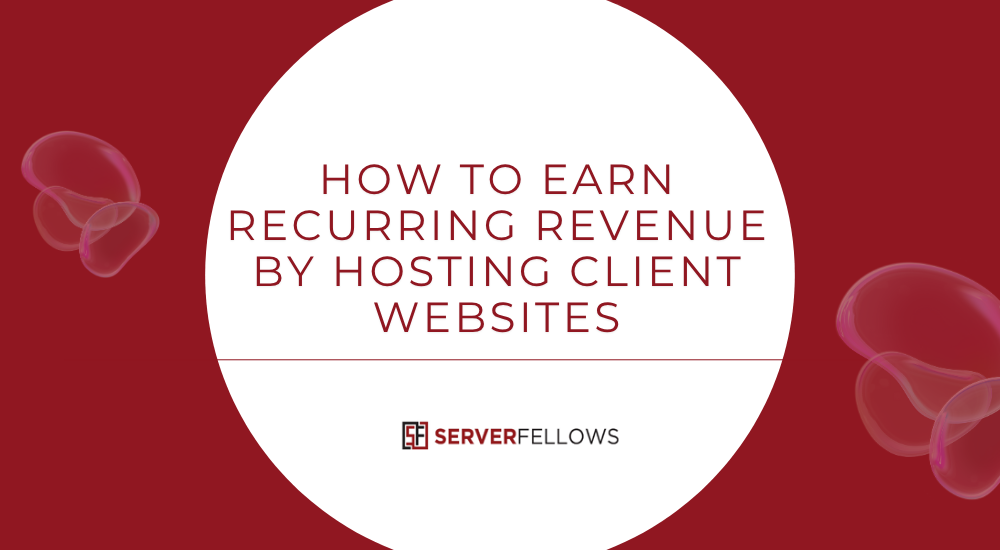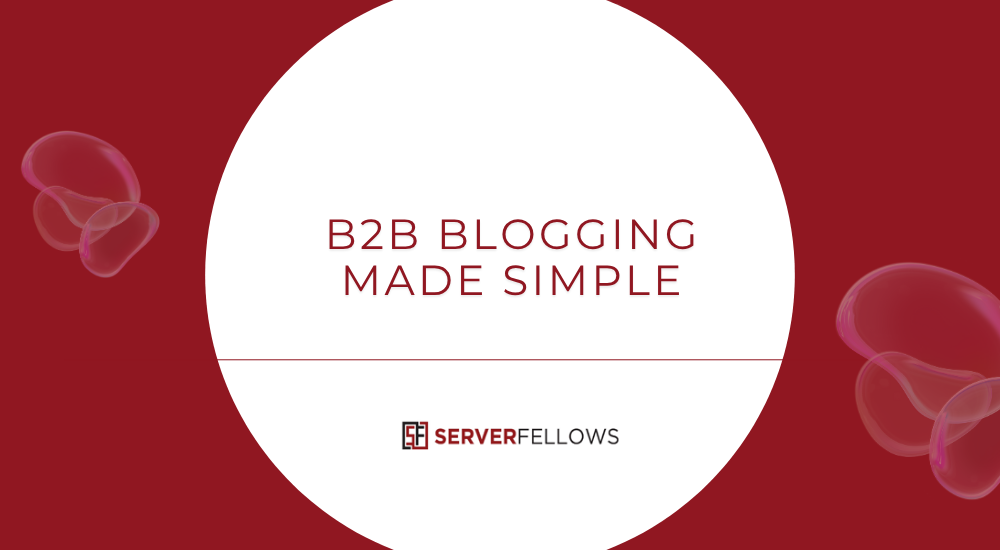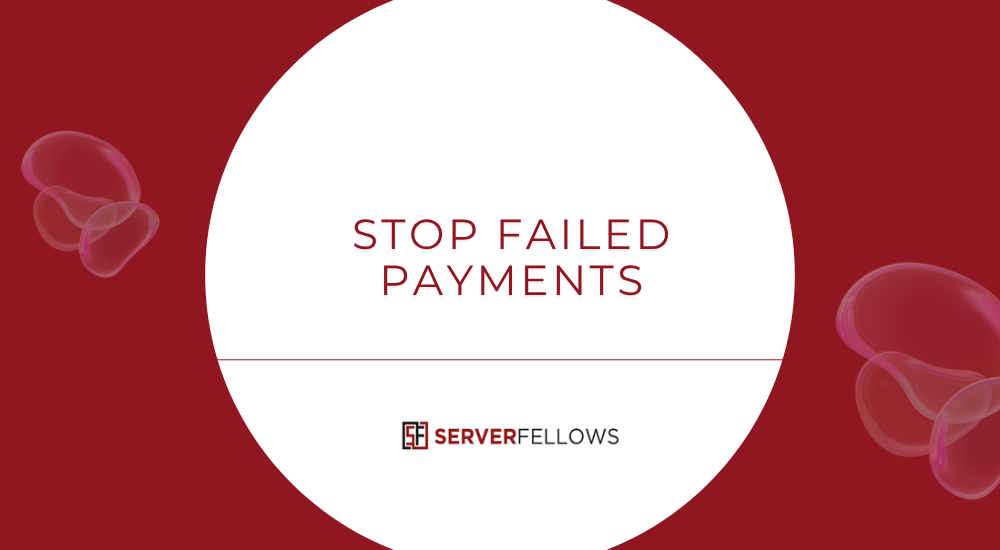
How to Earn Recurring Revenue by Hosting Client Websites
If you’ve ever finished a web design project and thought, “What’s next?”, you’re not alone. Most designers and developers rely on one-off projects that end once the final payment clears. But what if every completed website could become a reliable, long-term income stream? The answer lies in learning how to earn recurring revenue by hosting client websites.
By bundling hosting, maintenance, and security into your services, you transform short-term projects into ongoing partnerships. Each website you launch becomes a small asset that generates monthly revenue. Over time, that predictable income compounds—stabilizing cash flow, building client loyalty, and creating financial freedom.
Let’s explore how to turn hosting into a dependable source of recurring revenue and scale your digital business without adding constant new client work.
Why Hosting Unlocks Predictable Monthly Income
When you only offer web design, income stops when the project ends. Hosting flips that model. Every site you build continues to earn, month after month, as clients pay for reliable performance, updates, and security.
Instead of chasing new projects, your focus shifts to nurturing existing clients. Hosting income covers your baseline expenses, funds new growth, and allows your team to take on fewer—but higher-quality—projects.
Clients are also more likely to stick with the person or agency who manages their hosting. You become their long-term partner—handling performance, security, and uptime—while they focus on running their business. That trust creates opportunities to upsell services like SEO, maintenance, or e-commerce upgrades.
With consistent hosting revenue, your agency gains financial predictability. You can forecast income, hire with confidence, and scale sustainably. Platforms like ServerFellows.com make this easier by giving agencies ready-to-use, managed hosting environments that scale effortlessly.
Mapping Hosting Plans to Client Types
Understanding your clients’ needs helps you pick the right hosting plan for each one—and protect your margins.
- Shared Hosting: Ideal for startups or brochure websites that don’t get heavy traffic. It’s affordable and easy to manage, making it perfect for small businesses.
- VPS Hosting: Great for growing companies that need better performance, dedicated resources, and scalability without the cost of a dedicated server.
- Dedicated Hosting: Suited for large sites, online stores, or applications with strict compliance or resource requirements.
- Managed WordPress Hosting: A smart choice for clients using WordPress who want updates, backups, and caching handled automatically.
- Reseller Hosting: Best for agencies that want to host multiple clients under one roof and manage them from a single dashboard.
By aligning hosting types with client growth stages, you future-proof their sites and your income. For instance, a client may start on shared hosting, but as their traffic increases, you can migrate them to a managed VPS. That upgrade means higher monthly fees—and deeper trust in your expertise.
Managed vs. Unmanaged VPS: Time vs. Control
Choosing between managed and unmanaged VPS hosting directly affects your workload, margins, and client satisfaction.
- Managed VPS means your provider handles server updates, patches, and security monitoring. It’s a hands-off option for agencies that want reliability without server headaches. You can focus on client relationships instead of troubleshooting.
- Unmanaged VPS offers full root access and control. It’s cheaper, but you’ll handle everything—firewalls, backups, and maintenance. It’s ideal if you have technical expertise or a dedicated system administrator.
While unmanaged options might appear cost-effective, the time spent maintaining them often outweighs the savings. Managed VPS, like the ones from ServerFellows.com, lets you prioritize client service and predictable performance, ensuring consistent uptime and satisfaction.
Packaging Hosting With Maintenance and Security
Selling hosting alone is limiting. Clients don’t just want servers—they want peace of mind. Bundling hosting with maintenance and security creates complete solutions that command higher prices.
A value-packed hosting bundle might include:
- Core and plugin updates
- Daily or weekly backups
- SSL certificate installation and renewal
- Malware scanning and firewall configuration
- Uptime monitoring
- Priority technical support
- Performance optimization (caching, CDN, database tuning)
Present this package as “Stress-Free Website Ownership.” Your clients will love the simplicity: one partner, one invoice, zero worries. You handle the technicals—they focus on their business.
Add Service Level Agreements (SLAs) that clearly outline responsibilities, response times, and uptime guarantees. This builds transparency and trust. As you grow, standardized bundles make pricing and scaling effortless.
Crafting Pricing Models That Build Long-Term Profit
Smart pricing turns recurring hosting into a dependable business model. The secret is to combine flexibility with predictability.
Here’s how to structure your plans:
- Tiered Packages: Offer 3 tiers (Core, Growth, and Scale) that differ in performance, storage, and support levels. This anchors your pricing and helps clients choose based on value rather than cost.
- Setup Fee: Charge an initial setup or migration fee to cover onboarding and configuration work.
- Add-Ons: Offer optional features like extra backups, advanced security, or performance tuning.
- Annual Prepay Discounts: Reward clients who pay yearly—this boosts cash flow and loyalty.
- Automatic Renewal: Enable recurring billing so revenue stays predictable.
Regularly analyze metrics like Average Revenue per User (ARPU), churn rate, and upgrade frequency. Adjust prices quarterly to maintain healthy margins. Hosting is a long game—profitability grows with consistency, not volume alone.
Building Your Own Hosting Brand Through White-Label or Reseller Plans
You don’t need to own servers to offer hosting under your brand. White-label and reseller hosting let you rebrand a provider’s infrastructure as your own, keeping control of pricing, client relationships, and revenue.
Through reseller platforms like ServerFellows.com, agencies can:
- Customize hosting plans and pricing
- Use branded dashboards and billing portals
- Manage accounts with WHM or Plesk
- Offer add-ons like SSL and backups
- Centralize support for all clients
This structure allows you to scale fast without hardware costs. Clients see your agency as the hosting provider—creating stickiness and higher lifetime value.
Streamlining Operations for Hosting Efficiency
To make hosting profitable, operational efficiency is key. Automation ensures each new client adds revenue, not complexity.
- Provisioning: Use pre-set templates for DNS, SSL, email, and backups to reduce manual setup time.
- Monitoring: Deploy tools that track uptime and server resources 24/7.
- Ticketing: Use a unified helpdesk for client requests with clear response times.
- Billing: Automate invoices, renewals, and reminders through integrated platforms.
- Reporting: Send monthly reports highlighting uptime, performance, and security updates.
These workflows minimize errors and help scale from a handful of clients to hundreds—all while maintaining consistency.
Turning Performance and Security Into Your Edge
Clients don’t understand server specs—but they value reliability. Performance and security are what keep them loyal and justify monthly fees.
- Speed: Use SSD storage, caching layers, and CDN integration to deliver blazing-fast load times.
- Uptime: Commit to 99.9% uptime or higher. Use health checks and alert systems to identify downtime instantly.
- Security: Apply malware protection, brute-force prevention, and SSL enforcement to every site.
Report these metrics monthly to show tangible results. Numbers like “100% uptime last month” or “20 blocked threats” validate your value and reinforce renewals.
Platforms like ServerFellows.com already have these performance systems built in, helping agencies maintain uptime and client satisfaction without managing the backend.
Upsell Essentials: The Secret to Higher Recurring Revenue
Once your hosting base is stable, upsells are your growth engine. Offer add-ons that increase revenue per client without extra acquisition cost.
- SSL Certificates: Include a basic SSL in all plans and upsell advanced or wildcard SSL for complex sites.
- Backups: Provide paid tiers for longer retention or on-demand restores.
- Bandwidth: Monetize high-traffic surges with scalable bandwidth upgrades.
- Storage: Offer performance-based storage tiers—SSD for active data, lower-cost for archives.
- Monitoring: Introduce paid real-time monitoring or monthly health audits.
Each of these solves real client problems while boosting your profit margin. The key is transparency—clearly communicate the added value and measurable impact.
Scaling From a Few Clients to a Full Hosting Portfolio
After you’ve onboarded your first few hosting clients, scaling becomes a matter of systemization.
- Standardize: Define clear SLAs, tech stacks, and pricing across all accounts.
- Automate: Use billing and provisioning tools to minimize manual steps.
- Monitor Growth: Track server utilization and upgrade capacity before hitting limits.
- Upsell Strategically: Offer clients performance or security upgrades quarterly.
- Train Your Team: Document processes for onboarding, migrations, and support.
As your recurring revenue grows, it will cover operational costs, allowing you to reinvest in marketing, automation, or new verticals. Hosting creates a foundation that stabilizes your entire agency business.
ServerFellows.com supports this scaling phase by offering white-label reseller solutions, built-in billing integration, and optimized managed VPS for agencies aiming to expand profitably.
Frequently Asked Questions
How Do I Handle Taxes for Hosting Revenue?
Hosting income is taxable as a service. Apply the correct tax rates depending on client location, and use accounting software that supports multi-region billing. Collect tax IDs from business clients and consult a professional for cross-border compliance.
What Should My Hosting SLA Cover?
Include uptime guarantees, maintenance schedules, data handling, backup frequency, support hours, and refund procedures. Transparent SLAs protect both you and your clients while setting professional expectations.
How Can I Protect Against Data Loss or Liability?
Use daily offsite backups, encryption, and cybersecurity insurance. Limit liability through contract clauses and encourage clients to maintain their own data copies. Establish recovery time objectives (RTOs) in your SLA.
What Metrics Predict Client Churn?
Monitor login frequency, support tickets, payment delays, and performance issues. Sudden drops in engagement or recurring downtime are early churn signals. Address them quickly with personalized outreach or performance upgrades.
How Do I Migrate Clients Without Downtime?
Perform blue-green deployments—clone the existing site, test on a temporary domain, then update DNS during low-traffic hours. Always maintain a rollback snapshot and monitor uptime after migration.
Conclusion
Learning how to earn recurring revenue by hosting client websites can completely reshape your agency’s financial future. Hosting turns each project into a long-term relationship—creating predictable cash flow, higher client loyalty, and scalable profits.
By bundling hosting with maintenance, security, and proactive monitoring, you provide a full-service experience that clients are happy to pay for every month. Combine that with smart pricing, white-label infrastructure, and efficient automation, and your agency will enjoy stable income without constant client hunting.
It’s time to stop relying on one-off projects. Turn every site you build into a monthly asset. Explore managed and reseller hosting solutions at ServerFellows.com and start building your recurring revenue engine today.


